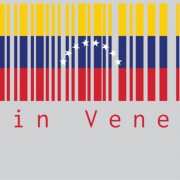Sticking It To The Rich Does Not Lead To The Socialist Paradise. Only The Uniqueness Of Individual Creativity Can Produce Wealth For All.
Last week Roman Catholics marked the octave of Easter, a time when the glory of the Resurrection fills believers with anticipation of good things to come—if not in this life then in the next.
But hope is hard to come by in Catholic Venezuela these days. The nation is racked by despair as it faces privation so extreme that families eat garbage from dumpsters. Millions have fled, often with only what they can carry.
Venezuela was once the richest country in South America. Now it’s a place of malnourished children, starving adults and pullulating disease. Yet its corrupt and cruel military dictatorship clings to power.
The world looks on in horror as Venezuelans are helpless to combat this evil. Inside and outside the country the refrain is the same: How could this have happened?
Venezuela’s abundant supplies of petroleum reserves played a role in corrupting the nation. But the real problem is ideological, and it’s a lesson for Americans.
Venezuela’s intelligentsia spent much of the 20th century inculcating the population with socialist pap. If you’re not sure what that means, listen to Sen. Bernie Sanders and Rep. Alexandria Ocasio-Cortez. They spout the same nonsense.
Intellectuals, educators and politicians promised that sticking it to the rich was the path to socialist paradise. As government intervention in the economy—particularly through price and exchange controls—damaged living standards, Venezuelans voted for more of it. Little did they know that by targeting the rights of successful entrepreneurs in the name of social justice, they were setting up the country to fail.
Venezuelan socialism fomented envy and deep distrust of business. This destroyed respect for persons who dared to be creative and build wealth. Poverty and dystopia were inevitable.
Climbing out of this hole will take more than removing dictator Nicolás Maduro. The country is devastated, but Venezuelans haven’t abandoned the collectivist cause. Many popular opposition politicians still call themselves socialists, unwilling to defend the creative class and its members’ right to the fruits of their labor.
Venezuela needs an ideas revolution that recognizes business as an endeavor of the human spirit. Socialists pose as humanitarians and sometimes even as Christians but their system strangles the person, who is at the heart of Catholic teaching. Catholic University of America research fellow Father John McNerney, author of “Wealth of Persons” (2016), describes the “real wellspring” of human progress as emanating from “the unique, irreplaceable and unrepeatable . . . reality of the individual acting in relation to his neighbor.”
We are more than simply individuals, because it is in relation with one another “as persons” that we discover ourselves, Father McNerney told me by email last week. “As ‘persons’ we have intellect and will, allowing us to go ‘beyond’ the material. It is as ‘persons’ that human creativity unfolds.”
Economists understand that the profit motive is integral to entrepreneurship. But it is about much more than material gains. Father McNerney illustrates the point in his book with the story of Agnes Morrogh-Bernard, a Sister of Charity who worked in the west of Ireland in the aftermath of that country’s notorious 19th-century famine.
Starvation had wiped out whole communities, when not physically, spiritually. The sisters engaged in all manner of philanthropy to reverse the deep demoralization caused by the “Great Hunger.” But Sister Agnes recognized that “mere philanthropic handouts could not recover” the annihilated Irish spirit. The community needed a creative outlet; it needed work.
The Irish nun had no business training. But one day she looked at the River Moy and determined that by harnessing both the power of the water and the creative spirit of the people, she could run a woolen mill. How she did it is somewhat of a miracle if you consider that she convinced a Protestant, who was also a Freemason, to underwrite her project.
The Foxford Woolen Mills still operates, which proves it is both economically sound and “profitable” for its employees. Agnes’s “entrepreneurial acumen,” Father McNerney writes, was “the spark that ignited the bright star of a small industry in post-famine Ireland.” She recognized the “creative dimension in us all” and a “need for its realization.”
Agnes had a kind of “feminine genius,” Father McNerney observes. She used her “charismatic entrepreneurial intuition to tap into the power and truth of a ‘person-centered’ understanding of economic development.”
This truth has been all but lost in Venezuela, where despite the depths of their misery many still yield the moral high ground to socialism. Can the country ever recover without embracing the creative entrepreneurial spirit and its success? It is doubtful, even in this Easter season of great hope.
This Article By Mary Anastasia O’Grady first appeared at wsj.com.




